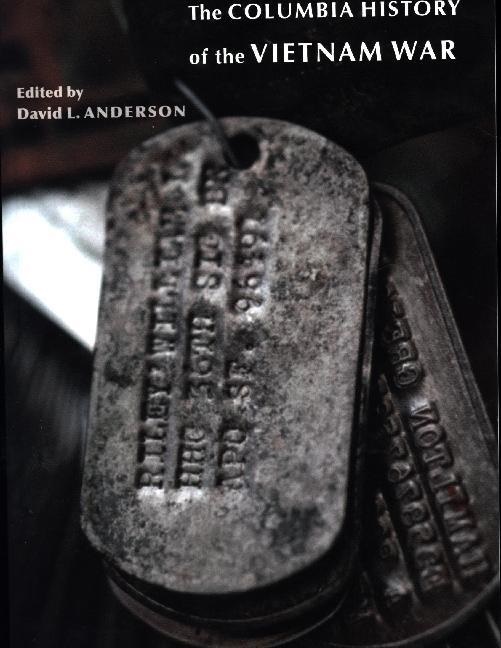Read more
Rooted in recent scholarship, The Columbia History of the Vietnam War offers profound new perspectives on the political, historical, military, and social issues that defined the war and its effect on the United States and Vietnam. Laying the chronological and critical foundations for the volume, David L. Anderson opens with an essay on the Vietnam War's major moments and enduring relevance. Mark Philip Bradley follows with a reexamination of Vietnamese revolutionary nationalism and the Vietminh-led war against French colonialism. Richard H. Immerman revisits Eisenhower's and Kennedy's efforts at nation building in South Vietnam, and Gary R. Hess reviews America's military commitment under Kennedy and Johnson. Lloyd C. Gardner investigates the motivations behind Johnson's escalation of force, and Robert J. McMahon focuses on the pivotal period before and after the Tet Offensive. Jeffrey P. Kimball then makes sense of Nixon's paradoxical decision to end U.S. intervention while pursuing a destructive air war.
List of contents
Preface
Abbreviations
Introduction: The Vietnam War and Its Enduring Historical Relevance
David L. Anderson
Part I. Chronological Perspectives1. Setting the Stage: Vietnamese Revolutionary Nationalism and the First Vietnam War, by Mark Philip Bradley
2. "Dealing with a Government of Madmen": Eisenhower, Kennedy, and Ngo Dinh Diem, by Richard H. Immerman
3. South Vietnam Under Siege, 1961–1965: Kennedy, Johnson, and the Question of Escalation or Disengagement, by Gary R. Hess
4. Lyndon Johnson and the Bombing of Vietnam: Politics and Military Choices, by Lloyd C. Gardner
5. Turning Point: The Vietnam War's Pivotal Year, November 1967–November 1968, by Robert J. McMahon
6. Richard M. Nixon and the Vietnam War: The Paradox of Disengagement with Escalation, by Jeffrey P. Kimball
Part II. Topical Perspectives7. American Strategy in the Vietnam War, by John Prados
8. The Village War in Vietnam, 1965–1973, by Eric Bergerud
9. Fighting for Family: Vietnamese Women and the American War, by Helen E. Anderson
10. Vietnamese Society at War, by Robert K. Brigham
11. "Hey, Hey, LBJ!": American Domestic Politics and the Vietnam War, by Melvin Small
12. Cambodia and Laos in the Vietnam War, by Kenton Clymer
Part III. Postwar Perspectives13. The Legacy of the Vietnam War, by Robert D. Schulzinger
14. The Vietnam Syndrome, by George C. Herring
List of Contributors
Index
About the author
David L. Anderson is professor of history emeritus at California State University, Monterey Bay, and past president of the Society for Historians of American Foreign Relations. His books include
Trapped by Success: The Eisenhower Administration and
Vietnam and The Columbia Guide to the Vietnam War.
Summary
The Columbia History of the Vietnam War offers new perspectives on the political, historical, military, and social issues that defined the war and its effect on the U.S. and Vietnam. This collection with contributions by leading scholars is essential to understanding America's entanglement in the Vietnam War and the history of modern Vietnam.
Report
"An accessible and coherent account of the war's course, from before the United States' involvement to the North's eventual victory." Lawrence D. Freedman, Foreign Affairs

